Podcast: Play in new window | Download (Duration: 51:11 — 46.9MB)
Subscribe: Apple Podcasts | Spotify | | More
Do more of what works. Do less of what doesn’t.
But that sounds easy. Empty even.
Kind of like urging people who want to be rich with an admonition, “Get a million dollars!” Great advice. But how?
Today’s show is going to be full of vulnerability. Not whining or complaining, but explaining. Experience and insight are valuable. Expertise isn’t always transferrable – from person to person. Each of us is on our own unique journey. But we can all derive some benefit when we lean into understanding somebody else’s journey. It can help us figure things out for ourselves, which is the ideal outcome in all my coaching work.
Success leaves clues, but so does failure. And modern culture often fools us into thinking the path forward is something different than reality. I recorded an episode over on my “hobby” podcast, Leaning Toward Wisdom that speaks to this.
There is enormous power in a mind made up. But that can work for bad, as well as good. A person bent on destructive behavior has made up their mind. Nobody can convince them that their behavior is harmful to their own life – and others.
We want to make up our own minds. In spite of the times when we wish somebody would just tell us what to do – mostly, that’s not what we want. I’ve found that people crave somebody with whom they can shell things down. The obstacle is always safety. It’s hard to find people who are safe enough because we desperately want to figure things out, but we want to be responsible for our own lives. We don’t want others imposing on us, even if we do seek their help. Being helpful isn’t as easy as it seems. Mostly because selfishness gets in the way.
These are important truths because every high-achiever or would-be high-achiever is chasing traction and momentum. We all want to build up speed so we can get some lift and go higher. But there are no principles of aeronautics to help us. This is life stuff. Everybody is unique in their environment, situation, natural tendencies, talents, connections, experience, and most everything else you can think of.
Last week a client asked me for an answer – something I rarely do because my work isn’t about telling people what to do. Rather, it’s about helping them explore more deeply so they can figure it out for themselves. But once in a while, usually provoked by some specific challenge, a client will blurt out, “Just tell me what you think I should do.” This time I responded with more questions.
“Were you born in Ada, Oklahoma in 1957?” I asked.
“No,” he said.
“Then it doesn’t much matter what I’d do ’cause I’m not you. So let’s explore your options,” I said.
We spent the next 45 minutes examining the choices before him. He settled on two and together we wrestled those down until he saw a clear winner. So it goes.
With that context in mind, I want to share with you my professional journey over the past dozen years since leaving the C-suite to set out to serve and help business owners, executives, and leaders. Traction and momentum are critical goals for every person I work with. And likely for everybody who aspires to their own growth and improvement.
One of the biggest questions we ask ourselves is, “When should I quit? When should I give up or pivot?” You don’t have to be an entrepreneur launching a new business to ask yourself those questions. Whether it’s about a relationship, a hobby, a fitness routine, or anything else we pursue – all of us wonder how long should we stick with it without seeing meaningful progress.
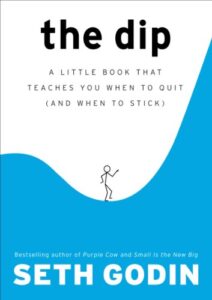 Seth Godin wrote a book in 2007, The Dip: A Little Book That Teaches You When to Quit (and When to Stick). It’s a short, but worthwhile read. I’m not certain it actually teaches you when to quit and when to stick, but I found it helpful even if it didn’t provide absolute answers. Frankly, I was never expecting Godin, who is quite smart, to provide absolutes. He provokes thought and that’s plenty good enough for me.
Seth Godin wrote a book in 2007, The Dip: A Little Book That Teaches You When to Quit (and When to Stick). It’s a short, but worthwhile read. I’m not certain it actually teaches you when to quit and when to stick, but I found it helpful even if it didn’t provide absolute answers. Frankly, I was never expecting Godin, who is quite smart, to provide absolutes. He provokes thought and that’s plenty good enough for me.
We jump into the water and begin to pursue some outcome. After hours of swimming, it may be tough to know if we’re any closer to that far shore we were aiming to reach. At what point do you turn back? How much longer do you keep swimming?
There are many stories of mythical failures – times when a person made a nominal investment at an early critical time in a company that wound up becoming a global behemoth, but the person accepted a modest return on their investment and walked away. They quit too soon, we think. Well, it’s easy to see that now, but perhaps in real-time that person made a choice that seemed best for them.
How can we know?
Sometimes we can’t. Time and chance happen to all of us. Sometimes good fortune falls our way. Sometimes not.
Failure is our more commonly shared experience than success. We don’t want to admit it. Or talk about it. Ignoring or avoiding conversations about failure is more harmful than not though. We fret about our ego, our appearance, our image. Forget that we likely should fret more about our ignorance and our lost opportunities to learn so we can become better people. And in the process, perhaps find the traction and momentum we seek.
I get it. We don’t want to be vulnerable to just anybody. Or everybody. I’m not suggesting we should be. It’s a decision best made by each of us for ourselves.
I am suggesting that more of us step forward to be that somebody though because the world could certainly use fresh honesty. And wisdom. Plus learning. All of which can be had when we talk about, listen, and understand our failures. And the struggles we endure to capture traction and momentum.
You drive through some muddy ground when suddenly you’re stuck. You give the car more gas. You put it in reverse. You put it back in forward. You’re going nowhere.
Eventually, you get out to take a look. It can’t hurt to examine the situation. The faster you do this, the better. I mean, how about stepping out to look when you’re first stuck? Isn’t that better than gunning the car and digging yourself in deeper?
Well, you’re outside staring at this wheel that’s about 3 inches deep in slimy mud. Nearby you spot some rocks and decent-sized sticks. It may not work, but you’re stuck. Best you can figure, putting a few good-sized rocks and sticks under the tire can’t hurt. So you give it a go.
Back behind the wheel, you put the car in a forward gear and gun it. You hear the sound of the sticks breaking. But you’re still stuck. No traction. No momentum.
Back outside you begin to think you made a mistake. Not with the sticks and stones, but in giving the car too much gas. You have an idea. You’ll repeat the process except this time, you’ll gently give the car some gas and attempt to ease out of the mud.
Here you go. Nice and easy! The car begins to inch forward. You’ve got traction. It’s not racetrack traction, but it’s enough to get you unstuck. And right now, that’s all the traction you want or need. You inch your way out of the hole and within seconds…you’re free. Traction and momentum. And you’ve learned. You won’t make the same mistake of gunning it the next time.
Our lives are like that. All the time. We’re making adjustments based on what didn’t work. Working to figure out what we don’t yet know. Or understand.
So what can I share that may help you? Plenty! 😀 I have failed more than not, but I don’t suspect I’m much different than you. Or anybody else. Here’s the real rub. Some of us have won bigger than others and that can dwarf the failures. Others of us haven’t won so big so our failures can appear larger. It’s just a relative perspective. Mark Cuban’s failures and struggles don’t seem much to us as we admire his wealth ($4.4B net worth). But compared to Jerry Jones ($8.8B net worth), Cuban’s failures look larger. Fact is, we’ve all been fortunate, unfortunate and we’ve all failed and succeeded. Others can quibble over the difference and the magnitude. Who cares?
Professionally I ran companies until about a dozen years ago. It was then that I started doing roll-your-sleeves-up-get-your-hands-dirty consulting work. After a few years, I realized I didn’t enjoy the work. It was too disconnected from the people side of things to suit me. And my natural talents. So I pivoted into coaching entrepreneurs, CEOs, executives, and leaders in city government (that last one was purely serendipitous and I was thankful to one young man who reached out because he knew me…from there, word of mouth took over). Unlike consulting, this coaching stuff fit me like a glove. Deep, private, confidential conversations helping people figure things out – that’s how I’ve always rolled. It played into all the things I naturally do pretty well. Frankly, things that are easy for you. Best of all, it moved the needle in people’s lives and careers. Not me, but having somebody like me who could help THEM do the work of figuring it out – it made all the positive difference in the world. It’s rewarding.
About 6 years ago I was introduced to the professional peer advisory world. Namely, CEO peer groups. I’d never been in one and I still wasn’t. But I was asked to form one here in DFW. As captivated as I was (and still am) with the notion of CEOs banding together to help one another, the situation just wasn’t an ideal fit for me. Culturally, I wasn’t a good fit. It happens. But I was still completely sold on the power of a group of people with one major commonality joining together in a peer advisory group.
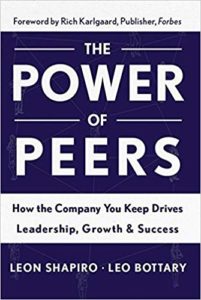 That’s when I introduced myself to Leo Bottary, co-author of The Power of Peers. Leo and I started a podcast. Today, our podcast is branded PEERNOVATION, after Leo’s company devoted to helping groups, teams and organizations elevate their performance through the incorporation of the five factors of peer advantage, as outlined in this book.
That’s when I introduced myself to Leo Bottary, co-author of The Power of Peers. Leo and I started a podcast. Today, our podcast is branded PEERNOVATION, after Leo’s company devoted to helping groups, teams and organizations elevate their performance through the incorporation of the five factors of peer advantage, as outlined in this book.
For the past 5 or 6 years, I’ve studied the topic, talked with dozens of people who’ve been able to teach me firsthand the value proposition of people supporting and serving one another. I was a ready convert a long time ago though so it wasn’t much of a challenge for me to increasingly see the high value of peer advantage – people learning together by sharing insights, experiences, and wisdom.
Almost 2 years ago, just months before the Pandemic kicked our butt, I’m sitting with a client and we’re talking about doing more of what works and less of what doesn’t. He asks, “How can you know? Sometimes I feel like things are very subtle.” As we talked through his circumstances, challenges and opportunities we both understood even more deeply than we had before – it’s difficult sometimes to discern. Recognition of traction and momentum – as well as recognition of the lack of those – isn’t always dramatic. His career was proof (so is mine) that sometimes it’s tough to figure out if you’re making progress.
So I asked, “When you feel like there’s a lack of evidence, what do you do?”
He took a deep breath and mumbled, “That’s a good question. I’m not sure.” I encouraged him to think about it. We sat in silence for a few minutes. Finally, he said, “I suppose I follow my gut.”
“What does that mean?” I asked. “Tell me what that feels like and what you’re thinking when you’re following your gut.”
He recited instances where he simply didn’t want to quit. He didn’t feel like giving up, even though there were no strong, definitive signals that things were working. As I probed more, he admitted that during these moments of determination, he believed success was possible. Even probable. He concluded that unless he had compelling evidence to show him progress (or failure), he based his actions on his confidence or belief in the thing. “I think I give up when I lose faith in it.”
So we wrestled down whether he was losing faith in himself or in the activity. Sometimes both, he said. “Sometimes I finally conclude that the idea might be valid, but I’m clearly not able to carry it out. Sometimes I suppose I’m just the wrong man for the job.”
It wasn’t a statement of insecurity. Rather, it was a statement of big-time confidence and self-awareness. I told him about my son who operates a home inspection business. He got a master’s degree enabling him to rise in the land of public education. After a decade in that arena, he was completely bored, burned out, and sick and tired of being sick and tired. He loved the kids, but hated the system. Besides, he had an entrepreneurial bent. And he’s an extrovert.
I told my client how different I am from my son. Now, you should understand that a big part of my work – especially early on in an engagement – is encouraging clients to become the best version of themselves. “Lean into being exactly who you are. Don’t try to be something or somebody you’re not.”
Well, my son has skills that come naturally to him. Skills I don’t have. And I have skills that aren’t natural for him. I often envy what he’s able to do with ease…things I could never do, even with intense effort. It’s that old adage about asking a fish to climb a tree. Not going to happen. But squirrels do it with ease. While fish operate in the water with ease.
Sometimes our failure isn’t really a failure. It’s learning. Sometimes we’re unaware of just how much of a fish we are. No wonder climbing the tree isn’t working out for us. Self-awareness is hard work. Coming face to face with ourselves is THE work I help clients accomplish. All our progress emanates from our ability to face our reality and if we’re displeased with it, to transform. Not by becoming something completely different, but by improving and growing.
That encounter provoked me to think about my own traction and momentum. Within a few days, I had spent considerable quiet time looking more intently at my own progress – especially in this arena of peer advantage. My interest in it hadn’t waned, but over time I found myself doing exactly what I urged my clients NOT to do. Push water a hill. It’s a metaphor for attempting to do something not likely in our best interest. Or attempting to do something with such inefficiency that it’s basically not worthwhile. It’s a catchall phrase for futility.
Staring into the mirror, I realized how guilty I had been in trying to push water up a hill. And like my client, I was going on gut – my faith and belief. I had no evidence my attempts were working, or moving me closer toward success. Fact was, I had very little evidence. But I so believed in it, I refused to quit.
Meanwhile, other endeavors that I wasn’t even that focused on were growing. I was ignoring traction and momentum in these areas because I just wasn’t paying close enough attention. I eventually came to understand – with more clarity than I’d had in a long time – that I was a hypocrite. I was urging clients to do more of what worked and less of what didn’t. Yet I was doing just the opposite. I was paying almost no attention to what was working because I was obsessed with making what wasn’t working work!
For weeks and weeks, I refused to quit simply I wanted it so badly. This thing I wasn’t succeeding at. Namely, my desire to build a professional peer group. I had long ago dubbed it, The Peer Advantage. So some weeks ago, in the middle of the night (when I do some of my better thinking and pondering), I decided to come to grips with it all. I coached myself through the process with tough questions and challenges. By the time I was done – and growing sleepy – I concluded that the idea is still valid, even terrific. But I’m not the right guy for the task. Like those things my son does so well that are almost impossible for me, I simply was unfit for getting traction and momentum. Rather, I’m ideally suited to facilitate groups when they’re gathered for a specific purpose, to achieve something specific. I’m also ideally suited for ongoing one-on-one deep interactions to help clients figure things out. But I am NOT ideally suited to sell and market and enroll folks into a professional peer advisory group. I love deep conversations, but I’m an introvert who despises selling in spite of the fact that I’ve spent most of my career selling. Influence is easy. Selling is hard. For me. But there’s something more important. A truth I came to better understand.
I love to craft and create content. Content to help my clients better understand. Content to help them figure things out. Content to help them paint themselves into a corner so they can at long last come face-to-face with themselves and move forward.
I love to write. And to podcast. All that talk of “be a media company” is right up my alley. I’ve been a one-man media company for more than 20 years. I’ve just used it for more auxiliary purposes rather than more overt ones. And it makes sense.
Couple my introversion with my need (and natural talent) to engage in deep conversations – and my natural curiosity to ask questions (and carefully listen so I can understand) – and it makes sense that the transactional nature of what many endeavors require…is something I simply don’t have. I could lean into trying to do the things I know work, but I’d have to go against my natural wiring to make it happen. And the older I get, the harder that is. And the less inclined I am to do it.
I’m making notes. Pondering. Doing the mental wrestling we all do when we’re engaged in growth exercises and experiments.
I come to terms with what I’ve long known about myself. Mostly by looking more closely at the things I do by default. Productive things. Things I love. In no particular order, I make notes. Writing. Podcasting. Videos. They all fall in the category of trying to share insights, experiences, wisdom – not in the spirit of “do this, don’t do that” but in the spirit of “this is what I’ve learned so far and it may help you, but I’m not telling you to do it this way – I’m challenging you to figure out if you can make application to your life.”
Deep curiosity about others. I want to know as much as others are willing to share. The past dozen years of coaching have taught me that almost 100% (there’s always the very rare outlier) crave somebody with whom they can be completely free and uninhibited to share their fears, concerns, challenges, hurdles, and whatever else stands in the way of their progress. I love being that safe person for others!
So mentally – and emotionally – I made up my mind. I could hear Tom Petty sing, “It’s time to move on…it’s time to get going.” It was weeks ago, but I was afraid to go public. I told nobody. Not even my wife. Shame of failure was hitting me. Until I realized what I constantly preach to others – NOBODY IS PAYING ATTENTION TO YOU. They’re too busy with their own lives. We delude ourselves sometimes thinking that folks notice every time we trip and fall down. And we think if they do see us, they laugh.
It was almost 4am when I smiled at the thought. And figured, if folks laugh, then it means they ARE paying attention. Good enough. Besides, it’s my life, not theirs. And I know what I’m really good at – and am not ashamed of what I’m not good at. It is what it is.
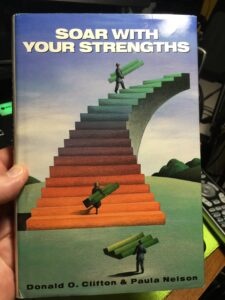 Mostly, I was really tired of what I now saw as the reality – the hypocrisy. Soar with your strengths was a concept that the father of Strengthsfinder, Donald O. Clifton had taught me in his 1992 book entitled that exact admonition, Soar With Your Strengths. It resonated with me. And fit everything I’d long urged of my clients. Be more (and better) of who are you…instead of struggling to be something you’re not (and probably never will be).
Mostly, I was really tired of what I now saw as the reality – the hypocrisy. Soar with your strengths was a concept that the father of Strengthsfinder, Donald O. Clifton had taught me in his 1992 book entitled that exact admonition, Soar With Your Strengths. It resonated with me. And fit everything I’d long urged of my clients. Be more (and better) of who are you…instead of struggling to be something you’re not (and probably never will be).
I was preaching solid sermons. It was now time to live them more fully. Mostly, to be true to myself in order to provide more value to others.
So I’m pulling the plug on any attempt to build a professional peer group. I’m still very focused – as I’ve always been – in building and sustaining a high-performance culture (environment). It begins with helping leaders build the highest-performing careers possible so they can be more impactful. From there, it’s about growing people so we can have groups and teams that accomplish great things. It’s about leveraging high-performance right where we live and work so our organizations can benefit. It’s leadership. In a word, influence!
And now, for me, it’s about leveraging all my best skills, insights and experiences so others can derive the most value. Which, for me, means it’s about creating instructional, educational, inspirational and challenging content to help more people figure it out for themselves – faster and better!
What might that look like? I’m not sure, but I have some strong ideas. But I’ve learned this much, in order to grab onto something new and better, we’ve got to turn loose of something old that isn’t working. So happy Friday, June 4, 2021. I’m turning loose and it feels…pretty grand. Relief.
Be well. Do good. Grow great.


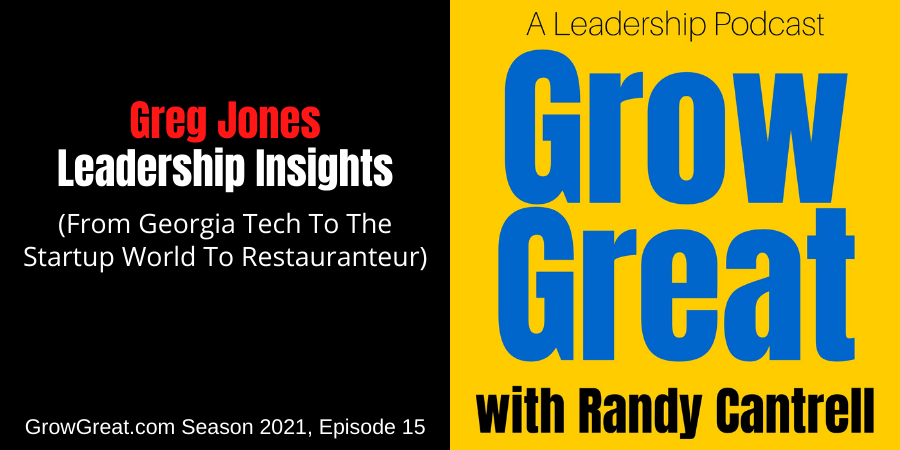
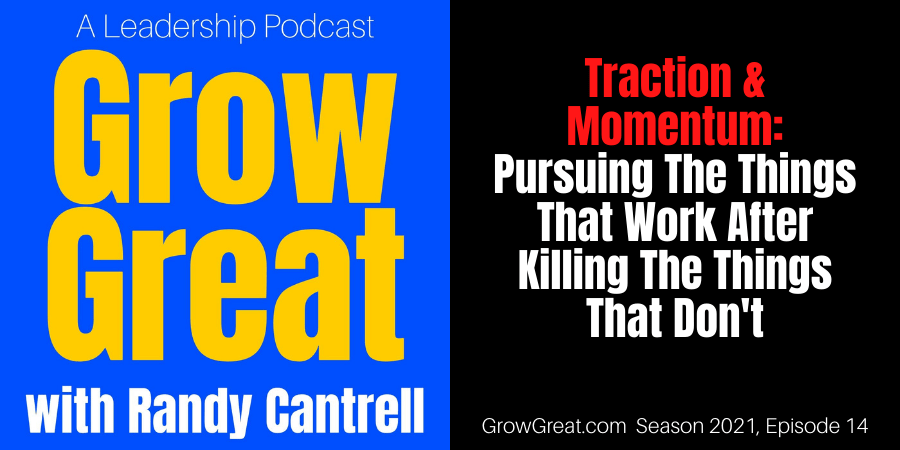
 Seth Godin wrote a book in 2007,
Seth Godin wrote a book in 2007, 


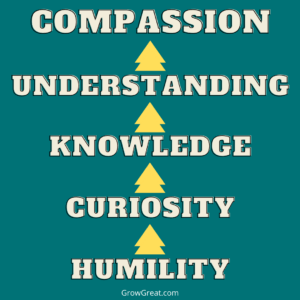 Human capacity to work for one another. With one another. It’s extraordinarily high value. And too frequently hard to find and to accomplish. Because we get in the way. In a word, it’s pride that ruins things.
Human capacity to work for one another. With one another. It’s extraordinarily high value. And too frequently hard to find and to accomplish. Because we get in the way. In a word, it’s pride that ruins things.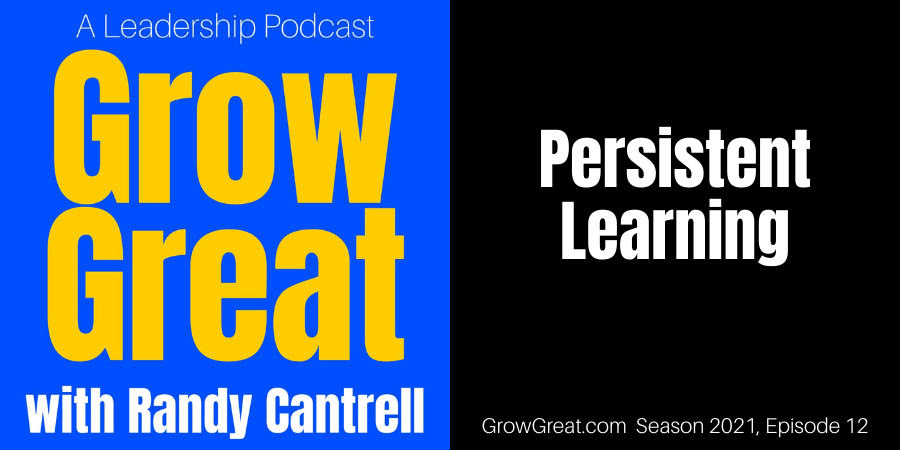
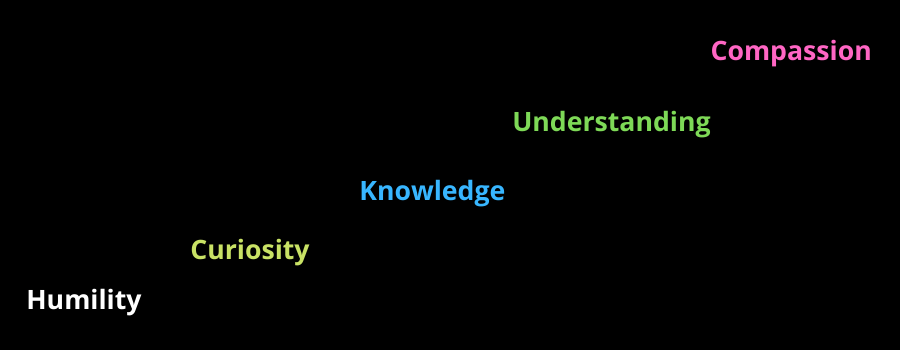
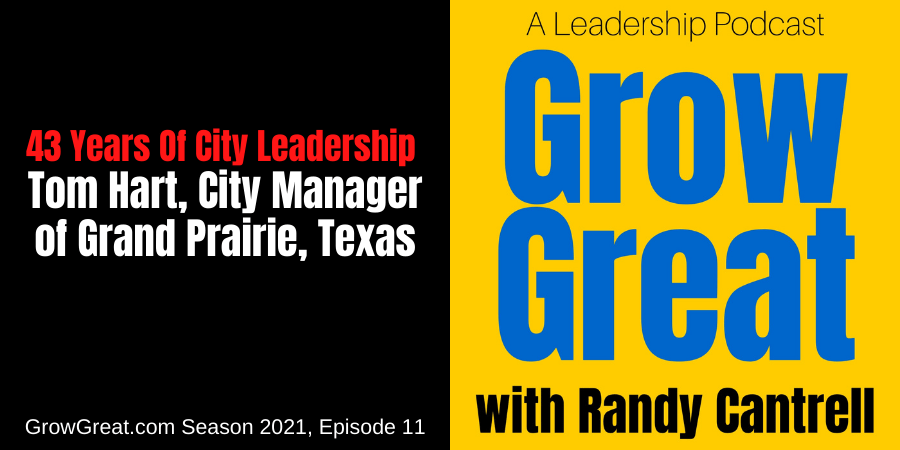
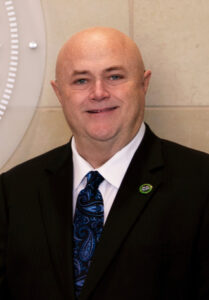
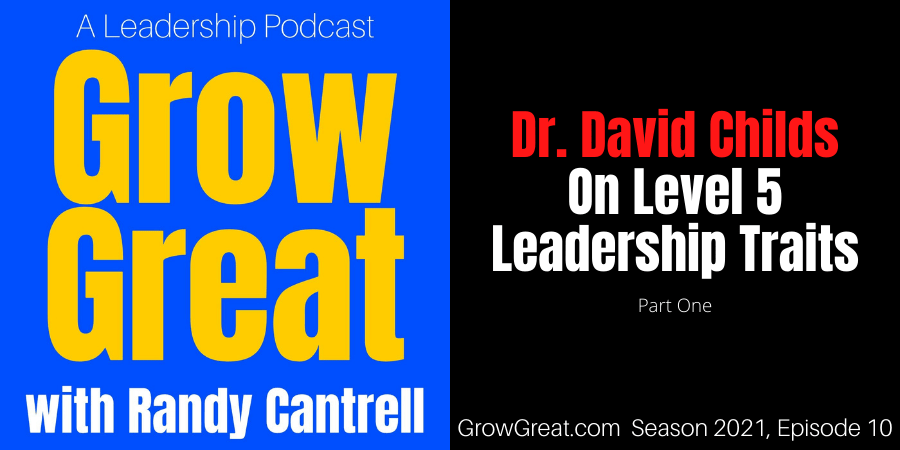
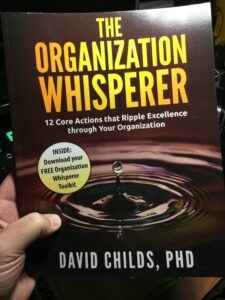 Today, I’m rejoining Dr. David Childs, Ph.D. for a conversation about what Jim Collins referred to in his books as
Today, I’m rejoining Dr. David Childs, Ph.D. for a conversation about what Jim Collins referred to in his books as